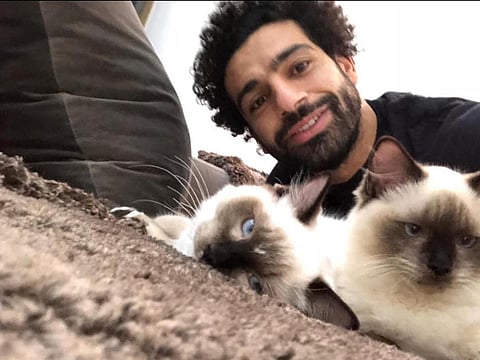Uproar in Egypt over ‘plan’ to export stray animals
Reports allege MPs were floating plan to export cats and dogs to Asia for consumption

Cairo: Online reports that Egyptian authorities plan to hunt stray animals and export them to be eaten as food have provoked an outcry in the country.
The row first erupted in October when social media personalities claimed that a lawmaker had proposed exporting stray cats and dogs to countries where they are eaten and use the revenues to shore up Egypt’s finances.
Other online reports alleged that the governmental General Authority for Veterinary Services had approved the exportation of 4,100 strays.
They did not provide evidence of such claims.
Egypt’s streets are infested with cats and dogs often seen scavenging garbage heaps for food mainly in the working-class areas.
Their population is estimated at over 20 million, according to unconfirmed figures. But once word got out about the alleged exportation plan, animal rights advocates rose up in arms.
MP Margret Azer, the deputy head of the Egyptian parliament’s Human Rights Committee, bore the brunt of the criticism, allegedly for proposing to export stray dogs to some Asian countries for food.
“We could collect the stray dogs and place them in a farm where they would be put on a special diet for proper nutrition and then slaughtered and exported,” Azer was quoted as saying.
“This can be an alternative to shooting dead dogs or castrating them. This would be an investment for Egypt,” she allegedly added.
It was not long before Azer denied she had made such a proposal to the parliament.
“There are people, who want to stir a fuss in order to tarnish the legislative role played by the assembly in debating draft laws, which are more important for citizens’ interests,” she said in a press statement.
The Agriculture Ministry, of which the General Authority for Veterinary Services is affiliated, followed suit.
Spokesperson Hamed Abdel Dayem said that the ministry does not import or export dogs or cats, but applies certain measures to animals that accompany travellers who come to or leave Egypt.
Moreover, MP Nadia Henry told a local television channel that she had submitted an urgent request at the parliament to draft a bill that criminalises the export of cats and dogs outside Egypt.
The row did not end there.
In fact, it has sharply polarised the country of nearly 100 million people. The hashtag #fight_Egyptian_cats_and_dogs_export went viral online.
Popular public figures also spoke out against the suggestion of exporting strays outside Egypt.
They included Egypt football icon and Liverpool striker Mohammad Salah. He posted a photo of him along with his two pet cats. He tweeted: “Cats and dogs will not be exported anywhere. This won’t happen and can’t happen.”
The 26-year-old superstar also launched the hashtag #no_to_animal_rights_abuse.
Likewise, Egyptian actress Nada Bassiouny, who is also an animal rights activist, turned to Twitter, expressing opposition to the idea of exporting strays.
“Humanity and mercy in all the developed countries oppose what happens to the dogs and cats in East Asian countries, from burning them alive, and eating them. Is this the proper way the MP is asking to deal with the stray dogs?!” she tweeted.
“Is this the way you, your Excellency the MP, want to bring hard currency to Egypt? Why don’t you think of setting up projects and industries as well as exporting industrial or agricultural products? How cruel!” the actress said in a second tweet.
Several Asian embassies in Cairo were quick to deny that there were talks to import cats and dogs from Egypt.
Even though the uproar persisted and became a public debate.
“Of course, I’m against such a decision. It is not acceptable, morally, religiously, or legally,” said Mona Mahmoud Ahmad Hamed, an engineering graduate and a member of Resala charity’s “Have Mercy” group.
“Countries, which inhumanely boil, skin alive, and chop those poor souls, violate our Prophet Mohammad (PBUH)’s traditions of caring for animals. Moreover, this act will damage Egypt’s reputation in the eyes of foreigners at a time when we desperately need to revive tourism in our country,” Mona added.
-With inputs from Radwa Ahmed



